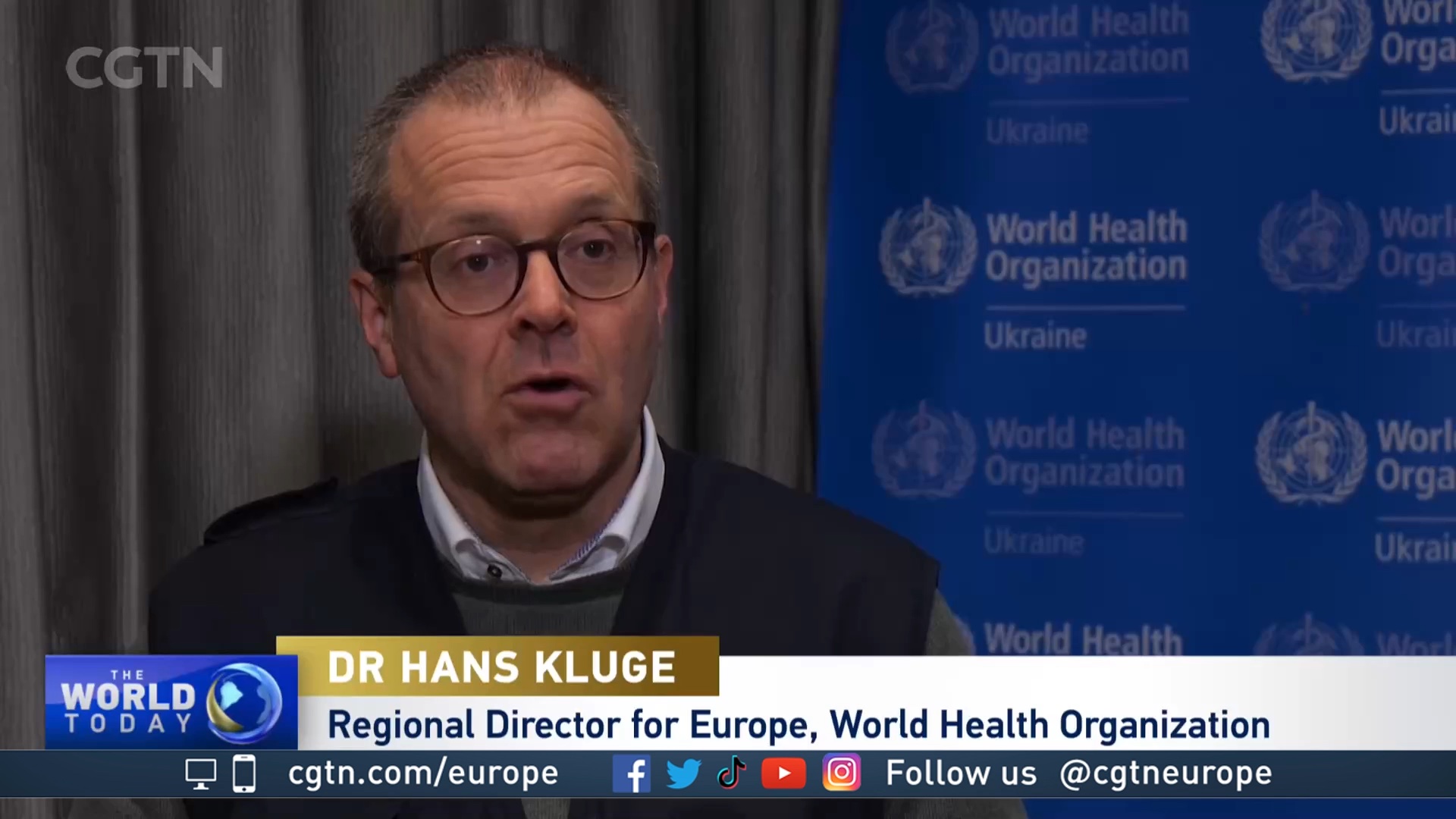02:24

The combined death toll in Türkiye and Syria has reached more than 41,000, and millions are in need of humanitarian aid, with many survivors left homeless in near-freezing winter temperatures. Rescues are now few and far between.
The focus has shifted to supporting survivors and with much of the region's sanitation infrastructure damaged or rendered inoperable by the earthquakes, health authorities face a daunting task in trying to ensure that people now remain disease-free.
READ MORE
UNHCR warns Syrian victims feel 'abandoned'
UN appeals for $1bn to help 5m+ in Türkiye
Hopes to find quake survivors fading
"The United Nations World Health Organization (WHO) has been mobilizing the biggest operation of emergency medical teams in its history," Hans Kluge, WHO Regional Director for Europe, told CGTN. "Currently, there are more than 25 emergency medical teams on the ground, which we are coordinating."
He said that the search and rescue mission remains important as there are buildings with cracks which are still collapsing, "but gradually [we're] moving towards public health assessments and addressing the primary healthcare needs of the population."
He acknowledged that, like in any emergency, the mental health needs will be huge.

A damaged building in the rebel-held town of Jandaris, Syria. /Khalil Ashawi/Reuters
A damaged building in the rebel-held town of Jandaris, Syria. /Khalil Ashawi/Reuters
The WHO said earlier in the week it is particularly concerned about the welfare of people in northwestern Syria, a rebel-held region with little access to aid. It asked Syrian President Bashar al-Assad to open more border crossing points with Turkiye to allow aid to get through.
"To have a sustained humanitarian corridor into northwest Syria is the overarching priority, and we're very grateful that as of today, not only Bab al-Hawa is open, but three cross-border points [are also open]," said Kluge.
"Also, the different parties have agreed to have cross-line operations, but it's of a scale that needs to be really bigger because this is something that no country can manage on its own."
He recognized that Türkiye has a lot of expertise and highlighted how the organization has been collaborating with the country on emergency preparedness and response.
"Water and sanitation facilities have been damaged in northwest Syria – a lot above the ground has collapsed. So disease control is very important and [we must] have strong surveillance on any potential outbreaks," warned the WHO official.
Explaining the organization's priorities to facilitate survivors' rehabilitation, Kluge said providing shelter remains on top, noting that "people need heating, it's still cold outside."
He added the medium-term focus will be on controlling the spread of infectious diseases and providing mental health support during the rehabilitation process.